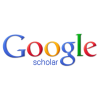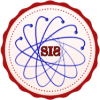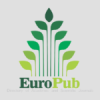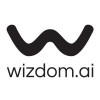Research Article
Aim & Scope
INTERNATIONAL JOURNAL OF MANAGEMENT ACADEMY accepts the theoretical and practical scientific/original articles on "management", especially on public administration and business administration. It is aimed to contribute to the literature and practice by establishing a multidisciplinary workspace with the journal.
It is published in Turkish and English languages four times a year (March - June - September - December) as of 2023. The journal was published three times a year in 2018-2022. All the processes from the application process to the publication process are carried out through the "DergiPark" system. The average evaluation period of the articles is 2 months. In the evaluation process, the "double-blind referee" application is used. Administrative, legal, ethical, etc. of the published articles. responsibilities belong to the author(s). All studies are subjected to a pre-check process with the "Turnitin" plagiarism program. Founded in 2018, the journal is indexed by around 30 national and international indexes. The journal, which has unlimited open access, does not charge any fees from article authors and readers.
Author Guidelines
1- The articles submitted for publication in the journal are required not to have been published or not to have been sent for publishing.2- WRITING AREA: Articles need to be written in Microsoft Word program. A4 should be selected as the paper type. Page layout (margins) for sections should be set as "top: 2 cm", "bottom: 2 cm", "right: 1.5 cm", "left: 2 cm", "indent-left: 0 cm' "indent-left: 0 cm" "special: none". Abstract, introduction, figures, tables, references, and notes must not exceed 35 pages in total. 3- SPELLING CHARACTERS: The font should be set as "Times New Roman" and the font size should be set as"11 points". 'Single line spacing' should be used as line spacing. 6 nk (inches) should be left between the paragraphs (before-after). No additional blank lines should be left between paragraphs except those spaces in question.4- In the text, a character range (space) must be left after the comma and dots (punctuation marks). The articles should be written in paragraphs and as "justified".5- MAIN TITLE: The article title should be written in bold, left-justified and 15 point font. The first letters of the words used should be written in upper case, and the others in lower case. English title should be written under Turkish title. Without line spacing, "6 nk" space must be left before and after between the Turkish and English titles. The first letter of the words in the English title must be capitalized and the other letters must be small. English title should be in italic, normal color (not dark), left justified and 12 points.6- AUTHOR INFIRMATION: After the English title (on the bottom line), the author's Name and Surname should be written in bold, Times New Roman font and 10 point font, left justified, without leaving a line space. It is required to write to the next line the academic title, the institution and the e-mail address of the author in full and clearly, in a normal color (not dark), Italic, and 10 point font, left justified. If there is more than one author, the other authors should also be added in the same way. Author information should not be additionally marked with a footnote.7- MAIN SECTIONS: The article text should be divided into the sections of "ABSTRACT", "ABSTRACT", "INTRODUCTION", Text, "CONCLUSION" and "BIBLIOGRAPHY". Main sections should be written in 11 points, bold, capital letters and left-justified. All main titles except REFERENCES should be numbered starting from 1 in order. 8. TURKISH SUMMARY AND ABSTRACT (8. TURKISH ABSTRACT AND ABSTRACT): The abstract should be between 120 and 250 words in "Turkish". There should be at least 3 and at most 5 "keywords" appropriate to the content at the end of the abstract. Abstract(summary) part of the Abstract should be prepared as "English" translation of Turkish summary text and key words. The words "ABSTRACT (summary)" and "ABSTRACT", which are the titles of these sections, should be written in capital letters, bold, with "6 nk" paragraph spaces before and after paragraphs. Turkish and English abstract sections should be prepared with a 3.5 paragraph indent, justified and 9 points with their titles.9- TEXT: The language used in article should be clear, understandable and fluent. The text must comply with the Turkish Language Association's spelling rules. In application-based studies, the "subject, purpose, importance of the research", Methodology of the research (universe, sampling, scales, data collection method and tools, constraints, data analysis techniques), " literature review "and" findings" should be included in the "text" section.10- OTHER TITLES (SECTION TITLES): Numbers must be given from the entry in title numbers. Title and subtitles should be numbered. All chapter titles must be in the first line setting and in the following order:1- TITLE: (All letters are uppercase and all are bold - 11 points)1.1 title: (Words are justified, bold(dark), and only the first letters are capitalized-11 points)1.1.1 title: (Words are justified, bold(dark), and only the first letters are capitalized-11 points)
11. TABLES AND FIGURES: All tables, figures and graphs within the study sections should be shown as centered on the page consecutively numbered in the appropriate places of the text. Each table, figure, or graphic should be given a title. The title should be on top of the table, figure or graphic, centered on the page and the table, with only the initials of the words capitalized and 11 points. The text in the table, figure, and graphic should be within the range of 8-11 points. The table, figure or graph should be easily readable and should be placed on the page appropriately in accordance with the page structure given above (not exceeding the page margins). A bibliography should be added just below the figures and tables.
12. SHOWING REFERENCE (CITATION): It is imperative to comply with the principles of citation (scientific citation rules) in the study. All responsibilities in this respect are owned by authors / authors. References should be made in accordance with APA standards by opening parentheses, giving the date and Page Number in the text. Additional explanations should be displayed at the bottom of the page using the footnote method.
Examples:Single Author: xxx (Keleş, 2006:289).
Two Authors: xxx (Mecek ve Doğan, 2015:214).Three or more Authors: xxx (Giritli vd., 2012:325).
13- REFERENCES (bibliography): All references should be included in the bibliography section. The resources used should be listed in alphabetical order according to the surname of the author and together without making distinction of qualifications (thesis, book, article, report, etc.). The works of the same author should be placed in the bibliography starting with the “oldest date”. Legislation and official gazettes should be grouped under the same rules at the bottom of the bibliography and given separately.Examples;DRUCKER, Peter (1994), Kapitalist Ötesi Toplum, (Çev. Belkıs Çorakçı), İnkilap Kitabevi, İstanbul, 2.baskı
GÖKÇE, Deniz (1997), “Merkez Bankasının Bağımsızlığı Sorunu”, Milliyet, 15 Mart
ÖZKUL, Gökhan (2008). “Girişimcilik Teorileri ve Girişimci Tipleri: Antalya-Burdur-Isparta İllerinde (İBBS Düzey 2 TR61 Bölgesinde) İmalat Sanayi KOBİ'lerindeki Girişimciler Üzerine Bir İnceleme”, Yüksek Lisans Tezi, Süleyman Demirel Üniversitesi Sosyal Bilimler Enstitüsü, Isparta.
NEGİZ, Nilüfer (2015), “Avrupa Perspektifinde Yerel Yönetimler”, İdari ve Mali Açıdan Türkiye’de Yerel Yönetimler, (Ed.Mehmet Mecek, Mesut Doğan, Bekir Parlak), BEKAD Yayınları, Antalya, 1.baskı, s.442, ss.430-455
Note: General considerations adopted in scientific writings should be taken into account in cases not specified in the writing.
14. SUBMISSION OF THE STUDY: The studies should be uploaded as Word document to the "Submit articles" section of the Management Academy Magazine (https://dergipark.org.tr/mana) in the DergiPark website. Processes are monitored through the system.
Thank you for your interest, contribution and support to our magazine ..
Ethical Principles and Publication Policy
Peer-reviewed articles are studies that ensure the application of the scientific method and impartiality. All components of the publication process in the realization of scientific production; The publisher, editors, authors, reviewers and readers are required to abide by the ethical principles. In this context, the publication ethics and open access policy of the International Journal of Management Academy, in line with the guidelines and policies published by the Committee on Publication Ethics (COPE) in open access (For example, the “Committee on Publication Ethics (COPE) Code of Conduct and Best Practice Guidelines for Journal Editors; “Code of Conduct and Best Practice Guidelines for Journal Editors” and “COPE Best Practice Guidelines for Journal Editors”) require all components of the publication process to comply with ethical principles.
Price Policy
Our journal is a non-profit scientific and peer-reviewed journal. Application/submission, process management, transaction/publication, etc. for articles sent to our journal. No fees are charged under the names.
Indexes
Citation Indexes
Other Indexes
Journal Boards
Chief Editor

Field Editors















Scientific and Advisory Board






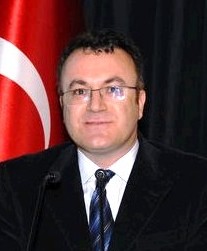



Editorial Board





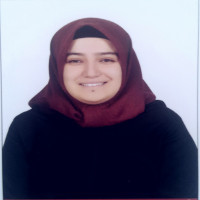
Creative Commons Lisansı
This work (journal) is lisenced under a Creative Commons Attribution-NonCommercial-No Derivative 4.0 International License.

